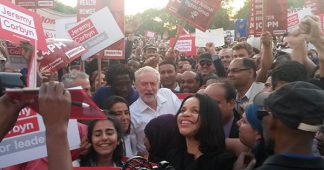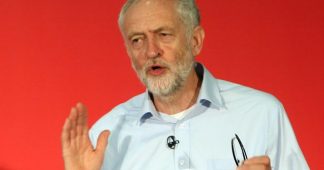DOCUMENTS passed to the Morning Star demonstrate that the purge of thousands of Labour Party members this summer has been far from impartial.
This will not come as a shock to readers.
But now we have concrete proof that cases of serious online abuse, subjecting Jeremy Corbyn and his backers to vile and misogynistic slurs, were simply ignored.
So was the use of the word “traitor” when directed at Corbyn supporters, when it was specifically singled out as unacceptable if used against his enemies; and while calling a rightwinger a “Blairite” was apparently bullying, railing at “commies” and “Trots” on the left was not.
Our source’s testimony makes it quite clear that the search for alleged abuse has effectively been used to remove the supporters of one candidate in the leadership election in order to boost the chances of the other.
How petty and flimsy the reasons for suspending some members are has already been documented by the Morning Star, with one of our contributors denied a vote because an exhibition review she wrote for the paper was later shared on a Communist Party website, while another was suspended for the one-off use of the word “traitor” in referring to Labour MPs resigning en masse from the shadow cabinet at the height of the chicken coup that let the Tories off the hook after the vote to leave the EU.
If the aim is to help Owen Smith win, it has clearly been a disaster. Corbyn’s lead over Smith is too large to be eroded even by the disenfranchising of 130,000 members for not having been around long enough, let alone by the picking off of a few thousand others.
Similarly, the contempt for the membership it displays has probably led many undecided members to rally round Corbyn rather than give in to a campaign of Establishment intimidation.
Of course, the intention may not have been to help Smith win, but to create such an atmosphere of fear and distrust in the party that leftwingers leave it in droves. (That hasn’t worked either.)
This is not to say that there have been no cases of Corbyn’s opponents receiving online abuse, and certainly not to justify it.
The internet can make it easy to target individuals and hurl insults and threats at them, allowing cowards who would never dare to behave in this way in the open to indulge their worst instincts.
That this was a problem was clear long before Corbyn became leader of the Labour Party, and if the party’s internal problems focus minds on how to address it we as a society will benefit.
But we should be acutely aware that the narrative being pushed in the monopoly media — rather feebly, it is true, in the case of Channel 4’s Dispatches yawnathon — that Corbyn supporters are infiltrators, bullies and thugs is a total fiction.
Nobody benefits when terms of political description are used as unthinking insults, and the word “Blairite” is probably overused on the left, although it isn’t clear the use of “Trot” by the likes of Tom Watson has been either more accurate or more edifying.
But a party which reacts by banning such terms comes across as paranoid and delusional.
And the most dangerous bullies are not hot-tempered Corbynistas who let slip the word “traitor” in the middle of an argument, but callous enforcers who can strip loyal members — some of decades’ standing — of their votes on a technicality.
There has been a lot of talk about Corbyn needing to heal the rift with his MPs after this election. But Labour will also need to consider how it wins back the trust of members who have been so scandalously mistreated.











